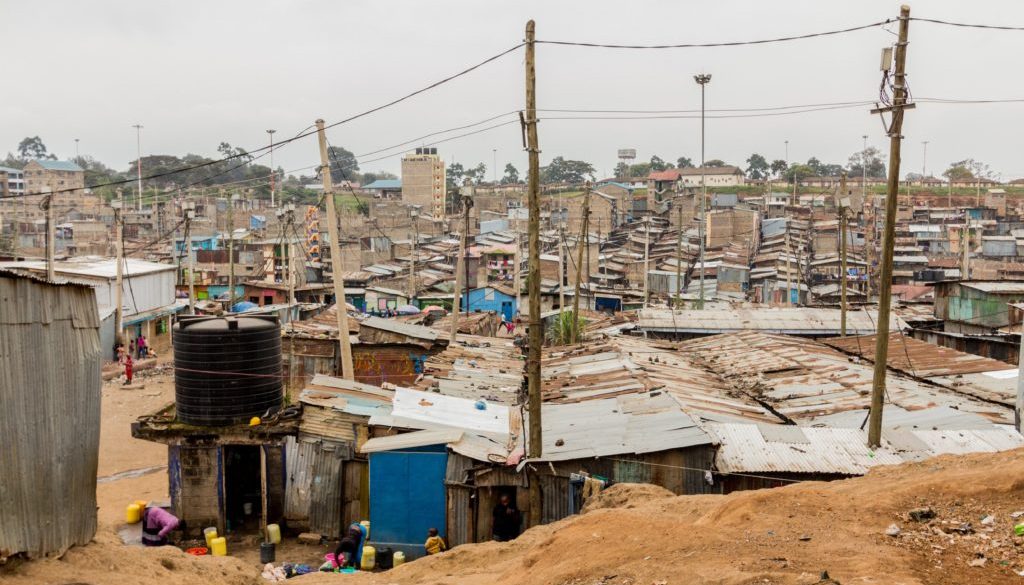How to conduct community-led action oriented data collection
In this blog Jacob Omondi, Muungano Wa Wanavijiji federation leader, talks us through how best to engage community researchers in data collection, based on his work in the Mathare informal settlement in Nairobi, Kenya.
Liverpool School of Tropical Medicine, Slum Dwellers International and Muungano Wa Wanavijiji conducted a study that investigated the enablers and barriers to capacity strengthening with community researchers. The study highlighted key issues on how community researchers have been engaged during research processes over the years. The study was conducted with 28 community researchers from Mathare and Mukuru informal settlements. It brought many insights on how best to engage community researchers in data collection, which I highlight in this blog. I will focus on Mathare informal settlement.
Mathare Valley is one of Kenya’s oldest and second-largest informal settlements, with approximately 300,000 residents. Mathare, the valley has four wards: Mlango Kubwa, Mabatini, Hospital and Utalii Ward. These wards are divided based on political boundaries into 13 villages. Like many informal settlements in Kenya, Mathare is characterised by poor housing, inadequate healthcare access, insecurity and limited access to basic needs
Key barriers and enablers to engaging community researchers in data collection
During our workshop, we discussed key barriers and enablers. Some issues that came out during the study include: a lack of inclusivity during research processes, lack of feedback after conducting research, lack of trust in community knowledge during data collection, research fatigue in communities and limited sustainability measures .
Over the years, informal settlements have been regarded as a research location as a result of the vulnerabilities that come with them; such as unemployment, poor housing, inadequate services, drug abuse and poor healthcare access. Research is one of the tools that vulnerable communities can use for advocacy, resource mobilisation, education and empowerment. Community members are at the centre stage of all research processes and development. It is easy for community members to mobilise resources and foster a sense of ownership if they get access to research data.
Informal settlements have often been used as a field for data collection without recognizing the efforts of community co-researchers. Indigenous knowledge during data collection is crucial as it provides a unique analytical perspective on research and should inform objectives and priorities. Recognizing and valuing the efforts of community co-researchers is a crucial step in this process.
To enable capacity strengthening and meaningful engagement, community members have proposed community-led exchanges and training on research to scale up research processes including data collection among informal settlement residents. These exchanges foster mutual learning and knowledge sharing, empowering community members and organisations to effectively leverage expertise and resources within and beyond one locality. These initiatives not only strengthen community resilience but also promote sustainable development. Through collaborative efforts and shared experiences, communities can collectively tackle challenges, identify opportunities and build networks to support creativity and innovation in addressing community issues.
One example of participatory research that involves community-led data collection is the settlement profiling and physical addressing system. In 2021 and 2022, as part of ARISE Slum Dwellers International-Kenya and Muungano wa Wanavijiji conducted a settlement profiling Mathare to understand what services exist.This exercise was actively led by community members, with professionals from SDI-Kenya and LSTM providing technical expertise and guidance. For instance, local Community Health Promoters were actively involved during the mapping and profiling exercise.
This involvement significantly improved the way in which Community Health Promoters offered healthcare services to community members. The physical addressing system made it easier for Community Health Promoters to navigate their task, particularly in offering health emergency response, immunisation and healthcare awareness. This reassures the audience of the effectiveness of the system and instils confidence in its ability to improve healthcare services in the community.
To conclude, by embracing community-led data collection approaches, we pave the way for scalability with impactful and targeted solutions that address complex issues and nurture thriving societies through capacity strengthening of community researchers .
